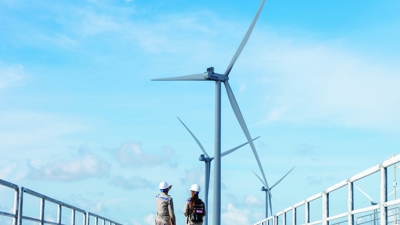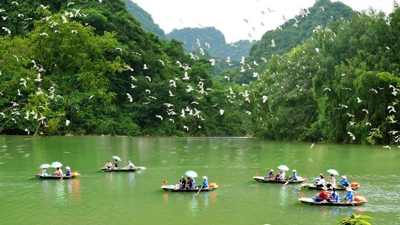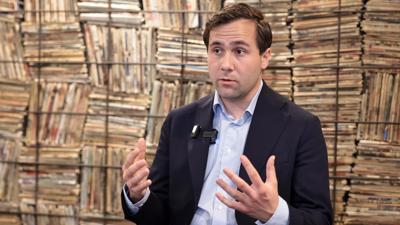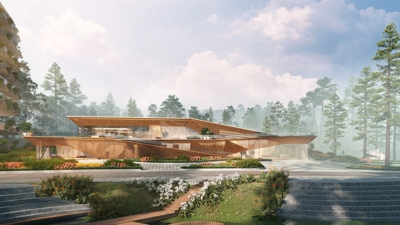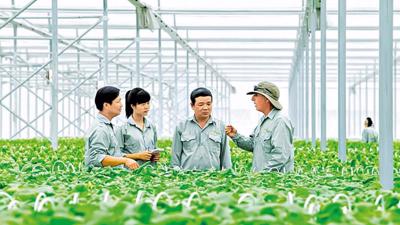Building ties in the Southern Hemisphere
Brazilian Ambassador to Vietnam spoke with VET’s Viet An about the significance of Brazilian President Luiz Inácio Lula da Silva's ongoing visit to Vietnam and the latest developments in the bilateral relations since elevated to a strategic partnership in 2024.
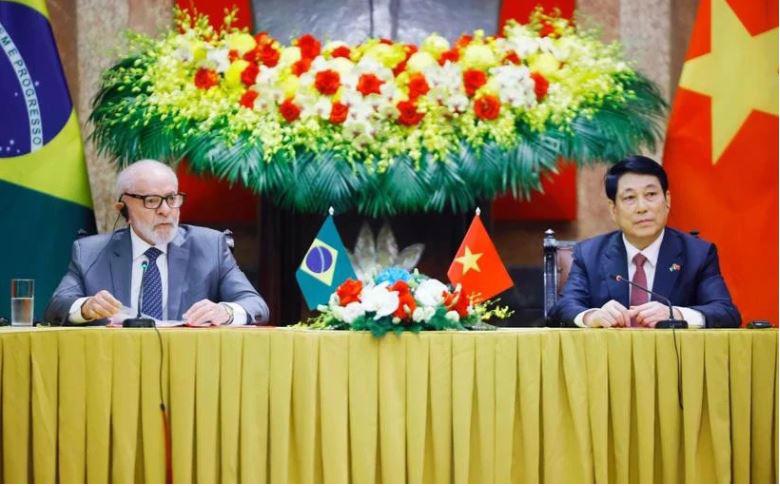
Brazilian President Luiz Inácio Lula da Silva visited Vietnam from March 27 to 29. What impact will this trip have on bilateral relations?
As I have pointed out on other occasions, President Lula da Silva’s visit to Vietnam is of great significance, as it will make an outstanding contribution to deepening bilateral friendship ties and expanding and diversifying cooperation in economic, commercial, and investment areas, as well as in politics.
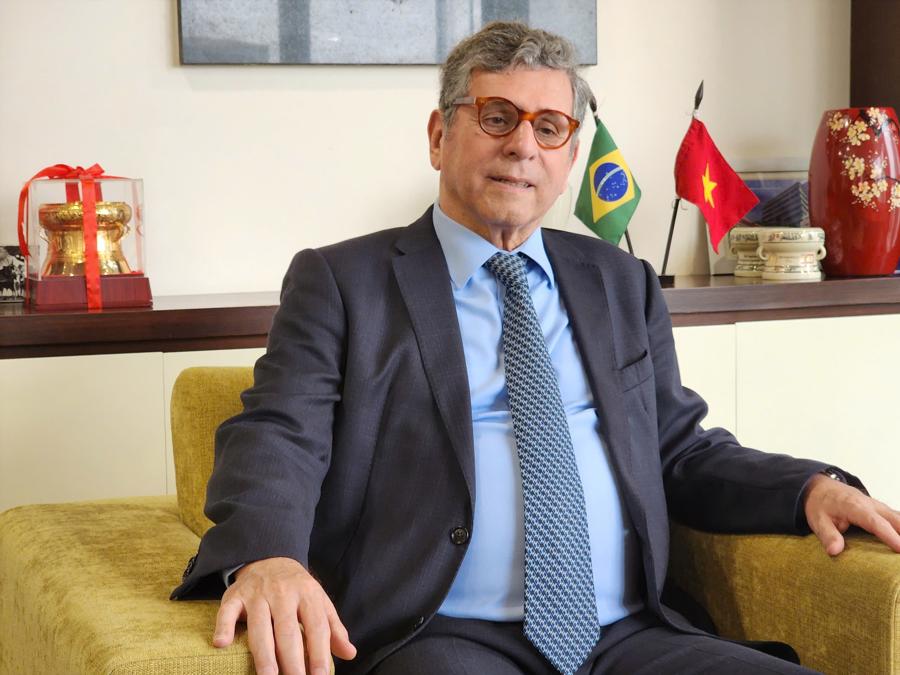
One notable aspect of President Lula da Silva’s visit is that he will be accompanied by a delegation of the highest political level, including the Presidents of both Chambers of Parliament and the National Congress. This state visit will have a significant impact on bilateral relations. Additionally, President Lula da Silva has invited a large group of Brazilian business leaders from some of the country's biggest companies across various industries and agribusiness to join his delegation.
Brazil and Vietnam, though located on different sides of the globe, share many cultural similarities. From a political standpoint, Vietnam is becoming increasingly important on the world stage. The country has welcomed visits from dignitaries worldwide, recognizing its geopolitical significance and its skillful, capable foreign policy. Vietnam’s economy has also industrialized at a rapid pace and remains highly open to international markets, with free trade agreements covering 64 partners globally. Vietnam is emerging as a major export and production hub in the region and beyond, transforming itself into a center of economic activity where global stakeholders want to establish a presence.
Vietnam’s political stability provides security for investors, ensuring a conducive environment for production and exports. President Lula da Silva’s visit to Vietnam aligns perfectly with this context. Moreover, it is also important for Vietnam to strengthen ties with countries in the Global South. Brazil, one of the largest economies in the Southern Hemisphere, has a GDP of $2.5 trillion and a vast market of over 200 million people. It is also the second-largest recipient of FDI, attracting nearly $70 billion in 2024. Both countries have much to learn from and cooperate on with each other.
However, President Lula da Silva’s visit is not the starting point of this strengthened relationship. That momentum began when Prime Minister Pham Minh Chinh visited Brazil in 2023. Since then, both countries’ leaders have held meetings at the recent G7 and G20 summits. They are set to meet again in July, as Brazil will be hosting and chairing the BRICS summit, where President Lula da Silva will invite Vietnam to participate.
The Brazil-Vietnam partnership represents a strong relationship between two developing nations from the Global South, both crucial players in their respective regions and both with a bright future ahead.
It is known that a large delegation of Brazil’s leading companies accompanied President Lula da Silva on his trip to Vietnam. Can you share insights on the potential for cooperation between businesses from both countries?
Vietnam and Brazil’s two-way trade turnover reached $7.9 billion in 2024, with significant potential for expansion. Prime Minister Pham Minh Chinh and President Lula da Silva have expressed their commitment to creating conditions for bilateral trade turnover to reach $15 billion by 2035.
Both countries have growing consumer demand, balanced economies, and politically stable environments, which naturally encourage bilateral trade. On March 29, the final day of the President’s visit, the Brazilian Ministry of Foreign Affairs and the National Confederation of Industry, in coordination with the Brazilian Embassy in Vietnam, will organize the Brazil - Vietnam Economic Forum. This event will bring together at least 100 Vietnamese businesses and 50 representatives from Brazil’s most prominent industries, including the agribusiness sector.
The Economic Forum provides an opportunity to analyze and discuss three key areas for strengthening bilateral economic relations: industrial cooperation, agricultural cooperation, and energy cooperation. Both economies have demonstrated strong growth in these sectors, driven by innovation and high-tech advancements.
Brazil and Vietnam are well-positioned to benefit mutually from this trade relationship—whether through technological exchange, partnerships aimed at third markets, or even collaboration in the defense sector. Brazil’s expertise in aviation and Vietnam’s strengths across multiple defense and security industries create promising opportunities for cooperation.
Vietnam and Brazil upgraded their bilateral relations to a Strategic Partnership last year. What steps have both countries taken to solidify this new partnership?
Last year, Vietnam and Brazil elevated their bilateral relations to a Strategic Partnership, reflecting the positive evolution and maturity of their ties. Brazil recognizes Vietnam’s growing role in Southeast Asia, its dynamic leadership within ASEAN, and its commitment to economic development and social welfare. Likewise, Brazil maintains a strong presence in the southern hemisphere and remains dedicated to sustaining its economic growth. As emerging economies, both countries play crucial roles in their respective regions while fostering friendly and stable relations with the global community.
This year, during President Lula da Silva’s visit, both nations will sign the Plan of Action for the Strategic Partnership. This is a significant milestone, as the plan outlines the specific areas in which Vietnam and Brazil will enhance cooperation. Besides political and people-to-people diplomacy, the Strategic Partnership will focus on four key technical areas.
First, agriculture will be a major pillar. Both countries have agreed that their agriculture ministries will hold technical meetings at least once a year to analyze and discuss ways to improve market access for agricultural products.
Second, science and technology cooperation is a priority, particularly in semiconductors and digitalization. Brazil has made significant advances in digitalization and has a developed semiconductor industry, creating strong collaboration opportunities for Vietnam in these fields.
Third, defense is an area of mutual interest, as Vietnam seeks to diversify its partnerships and suppliers of defense equipment. Given current uncertainties in international relations, expanding defense cooperation is a strategic move for both nations.
Finally, energy transition will be a crucial focus. Brazil, as the world’s largest producer of ethanol, has been using this fuel for 50 years in transportation. With Vietnam producing large quantities of corn and sugarcane, there is potential to incorporate ethanol into its energy mix, particularly in transportation. Brazil is ready to share its expertise to support Vietnam’s energy sector.
In our previous interview, you mentioned that Embraer is keen to expand its cooperation with Vietnam. Could you share what progress Vietnam and Brazil have made in their cooperation in the aviation sector?
The cooperation between Embraer and Vietnam's Ministries of Defense, and Construction holds great promise, particularly as Vietnamese airlines face a shortage of aircraft. Embraer is capable of overhauling and servicing aircraft efficiently. Moreover, Embraer aircraft have proven their reliability, operating worldwide with the autonomy to fly across all Southeast Asian countries as well as China.
Embraer, Vietnam Airlines, and Vietjet Air have been negotiating a jet purchasing deal for more than a year. Embraer has proposed that if these airlines purchase a certain number of aircraft, the manufacturer will establish a maintenance and pilot training center in Vietnam, which would serve as Embraer’s hub for the entire region. Additionally, financial support has been offered through the Brazilian Social Development Bank. The deal is currently under discussion, and we will have to wait and see how it unfolds.
The President of Embraer is accompanying President Lula da Silva during his visit to Vietnam and will hold meetings with the Vietnam People’s Air Force and the Minister of Defense. Vietnamese representatives have also been invited to participate in the LAAD Defence & Security Fair 2025, set to take place in Rio de Janeiro, Brazil. Additionally, the Vietnamese delegation has expressed interest in visiting Embraer’s factory and production facilities. This visit is being arranged to provide the Vietnamese side with a deeper understanding of Embraer’s manufacturing process.
Vietnam has expressed its desire to sign a free trade agreement with Mercosur. As an important member of this group, can you provide some information on the process of realizing this goal?
The Vietnam-Mercosur free trade agreement (FTA) is something Vietnam has been very keen on. President Lula da Silva will preside over Mercosur in the second half of 2025 and intends to coordinate the position of other countries in the region in favor of a free trade agreement. Once this is achieved, the negotiation process can begin. This topic will be discussed during the President’s visit to Vietnam.
The approval of every Mercosur member is required to initiate negotiations, and President Lula da Silva will work to persuade them to begin discussions on an FTA with Vietnam. A well-structured FTA between Mercosur and Vietnam would be beneficial for all parties involved. The agreement will be negotiated based on the principle of mutual benefit and can be expanded in the future depending on the needs of each side.


